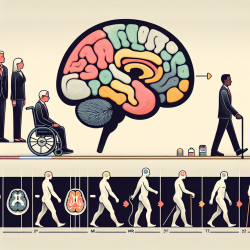Introduction
In the realm of education, especially in humanitarian contexts, the mental health and psychosocial support (MHPSS) of children is paramount. The recent study, "School-based MHPSS interventions in humanitarian contexts: a realist review," sheds light on the characteristics and mechanisms of these interventions, aiming to enhance the well-being and learning outcomes of children. This blog post will explore how practitioners can leverage these findings to improve their skills and encourage further research.
Understanding the Study
The study conducted a realist review of 27 articles representing 19 studies, focusing on children aged 6-12 in low- and middle-income countries. It identified 11 evidence-informed program theories at various levels, including child, teacher, caregiver, and school environment. These theories highlight mechanisms such as coping skills, emotion regulation, and interpersonal relationships, which are linked to improved psychosocial well-being and learning outcomes.
Key Findings for Practitioners
Practitioners can draw several insights from this study:
- Child-Level Interventions: Strengthening coping skills and emotional regulation through creative and expressive activities can significantly enhance children's psychosocial well-being.
- Teacher-Level Interventions: Training teachers to support student mental health can improve both teacher well-being and student learning outcomes.
- Caregiver Involvement: Engaging caregivers in interventions can strengthen family bonds, leading to better psychosocial outcomes for children.
- School Environment: Creating safe and supportive school environments is crucial for enhancing both psychosocial well-being and learning outcomes.
Encouraging Further Research
While the study provides a solid foundation, it also highlights the need for further research to support these program theories and enhance the evidence base. Practitioners are encouraged to explore the following areas:
- Implementation Challenges: Investigate how intervention delivery methods affect outcomes and identify best practices for different contexts.
- Longitudinal Studies: Conduct long-term studies to assess the sustained impact of MHPSS interventions on children's well-being and learning.
- Subgroup Analysis: Explore how interventions impact different subgroups, such as gender or socioeconomic status, to tailor approaches effectively.
Conclusion
School-based MHPSS interventions hold great promise for improving the well-being and learning outcomes of children in humanitarian contexts. By implementing evidence-based strategies and encouraging further research, practitioners can significantly impact the lives of these children. To read the original research paper, please follow this link: School-based MHPSS interventions in humanitarian contexts: a realist review.










